 Turnip sculptures amaze tourists in Qingdao
Turnip sculptures amaze tourists in Qingdao Chinese ship formation conducts live fire training in West Pacific
Chinese ship formation conducts live fire training in West Pacific
 China comes in third at figure skating team event
China comes in third at figure skating team event
 China's teenager skater Yan shines at his Olympic debut
China's teenager skater Yan shines at his Olympic debut
 Taiwan-born actor stars on US TV series
Taiwan-born actor stars on US TV series
 Chinese Lunar New Year gift from abroad
Chinese Lunar New Year gift from abroad Chinese champions of Winter Olympic Games
Chinese champions of Winter Olympic Games  Zhang Yimou fined 7.48 mln for over-production
Zhang Yimou fined 7.48 mln for over-production
 Top 10 timeless female Chinese stars
Top 10 timeless female Chinese stars
UNIMAGINABLE MEETING
In his speech at the meeting, Wang described his meeting with Zhang as "an unimaginable occasion in earlier years."
"Being able to sit down and talk is really valuable, considering that the two sides were once almost at war," he said in the address.
Zhang agreed that such a meeting would have been impossible earlier and called for "a little more imagination" in cross-Strait relations.
Relations between the mainland and Taiwan stalled when the Kuomintang, led by Chiang Kai-shek, fled to Taiwan in 1949 after being defeated in a civil war.
Business and personnel exchanges resumed in the late 1980s, and in the early 1990s the two sides started to engage with each other through the mainland-based Association for Relations Across the Taiwan Straits, and its Taiwan counterpart, the Straits Exchange Foundation.
The ARATS and SEF are non-governmental organizations founded in 1991 and 1990 respectively.
ARATS-SEF talks have speeded up since 2008 and produced a number of important agreements, including lifting the bans on direct shipping, air transport and postal services in 2008, and the long-awaited Economic Cooperation Framework Agreement in 2010.
The meeting between Zhang and Wang is an important breakthrough and may lead to regular visits. The two first met informally on the sidelines of the economic leaders' meeting of the Asia-Pacific Economic Cooperation in Bali, Indonesia last October, when they agreed to mutual visits.
GREAT EXPECTATIONS, HEAVY RESPONSIBILITIES
"We meet amid great attention and with high hopes, but bear grave responsibilities," noted the Taiwan's affairs chief, who believes the direction is a straightforward one and their purposes will not take long to fulfill.
Zhang also told his visitor, "As chief officials on cross-Strait relations, we should talk more and understand each other better. I think people on both sides would welcome that."
"The meeting itself is of more significance than what they had to say," Liu said. "In future meetings, they need to work on real issues and remove cross-Strait barriers."
Prof. Su Chia-hung of Taiwan's Fooyin University told Xinhua that the meeting is good for Taiwan and will lead to closer economic and cultural cooperation.
"If such meetings produce concrete outcomes and better services for common people, Taiwan will welcome the arrangement," he said.
Both Zhang and Wang agreed that the two sides should make the most of current favorable relations.
Cross-Strait relations have survived ups and downs over 65 years, evolving from military and political confrontation to the historic shift toward peaceful development in 2008, Zhang said.
"Today's cross-Strait situation has been hard-earned through the efforts of generations. We should cherish it and work together to maintain this favorable momentum," he added. "We should be determined to avoid any further fluctuations and setbacks."

 Special Coverage: Sochi Winter Olympic Games
Special Coverage: Sochi Winter Olympic Games 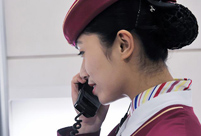 A day of a female high-speed train chief attendant
A day of a female high-speed train chief attendant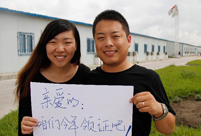 New Year greetings from Chinese nationals in Africa
New Year greetings from Chinese nationals in Africa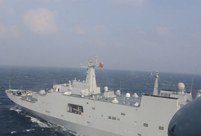 PLA navy conducts landing drills in South China Sea
PLA navy conducts landing drills in South China Sea 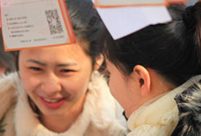 Blind date fair in Hangzhou
Blind date fair in Hangzhou  Highlights of Chinese New Year celebrations around the world
Highlights of Chinese New Year celebrations around the world  How do the Chinese spend their money during Spring Festival?
How do the Chinese spend their money during Spring Festival? 'Milk Tea' girl hosts Spring Festival gala of universities in U.S.
'Milk Tea' girl hosts Spring Festival gala of universities in U.S. 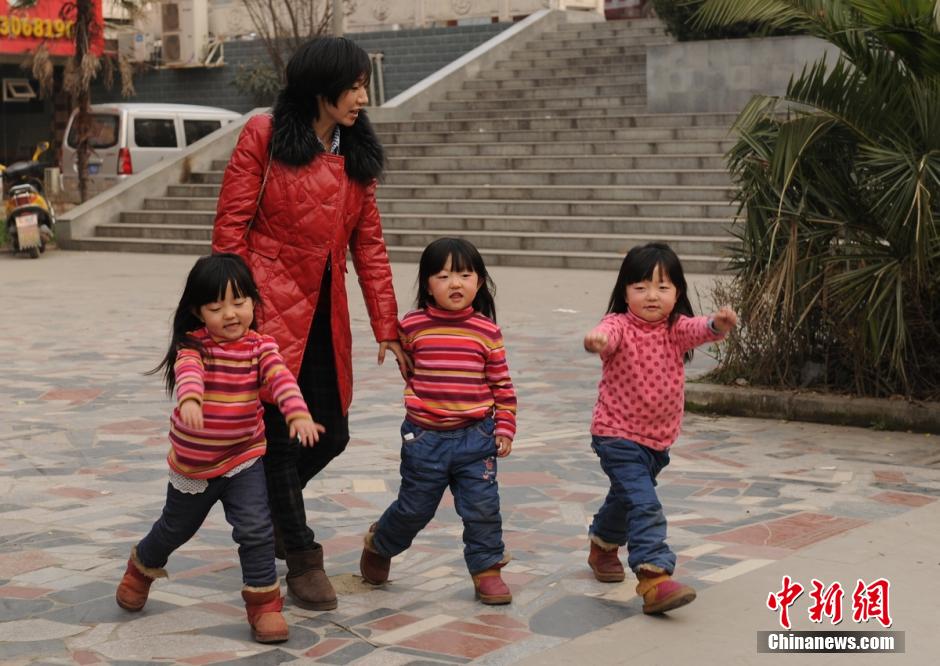 Brave mother fights cancer, enjoys Spring Festival with her triplets
Brave mother fights cancer, enjoys Spring Festival with her triplets President Xi attends opening ceremony of Sochi Winter Olympics
President Xi attends opening ceremony of Sochi Winter Olympics Highlights of opening ceremony of Sochi Winter Olympic Games
Highlights of opening ceremony of Sochi Winter Olympic Games Snowscape in Chinese New Year
Snowscape in Chinese New Year Interesting horse figures in life
Interesting horse figures in life  Top 20 most beautiful Chinese stars
Top 20 most beautiful Chinese stars  Top 10 Chinese films in 2013
Top 10 Chinese films in 2013Day|Week|Month